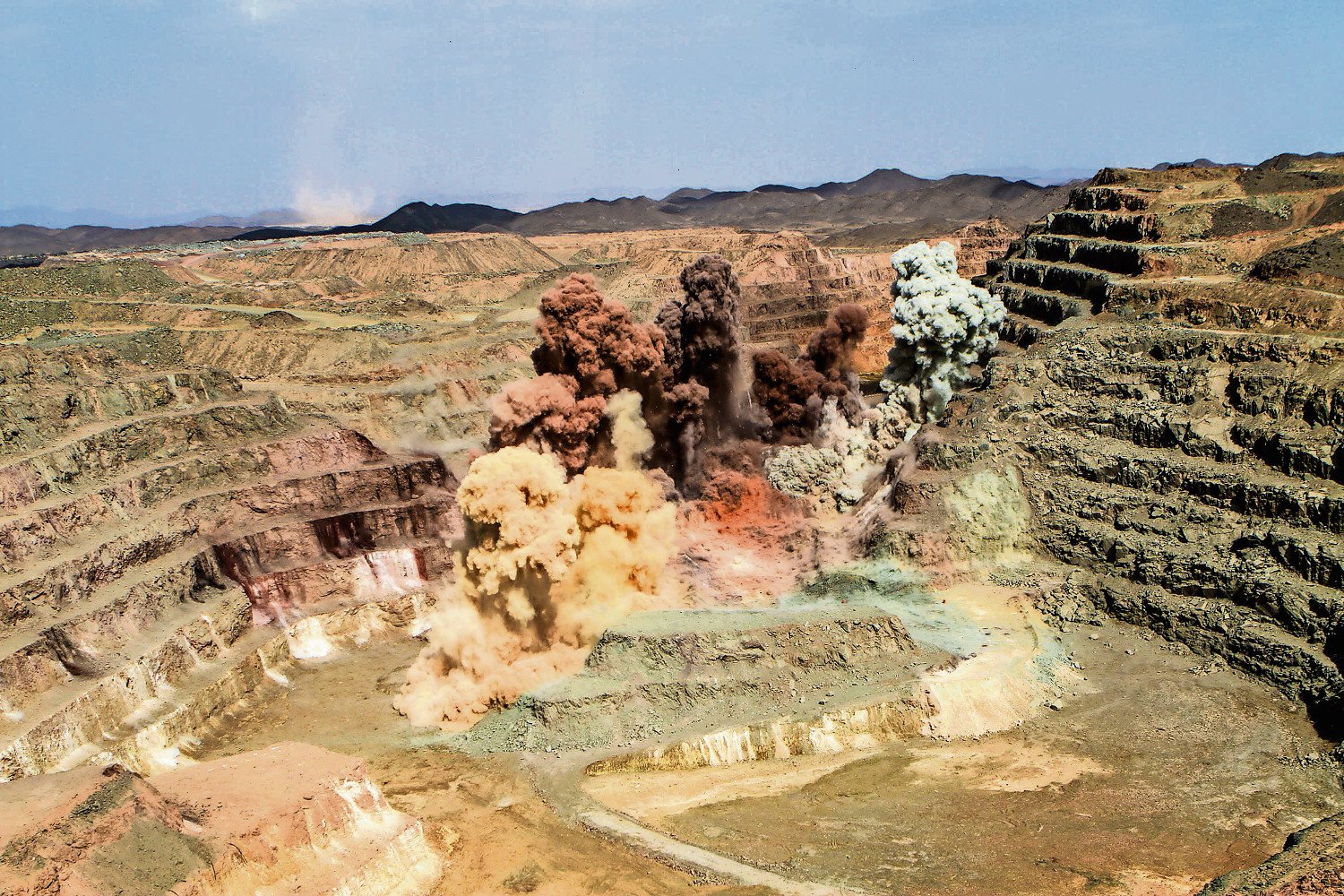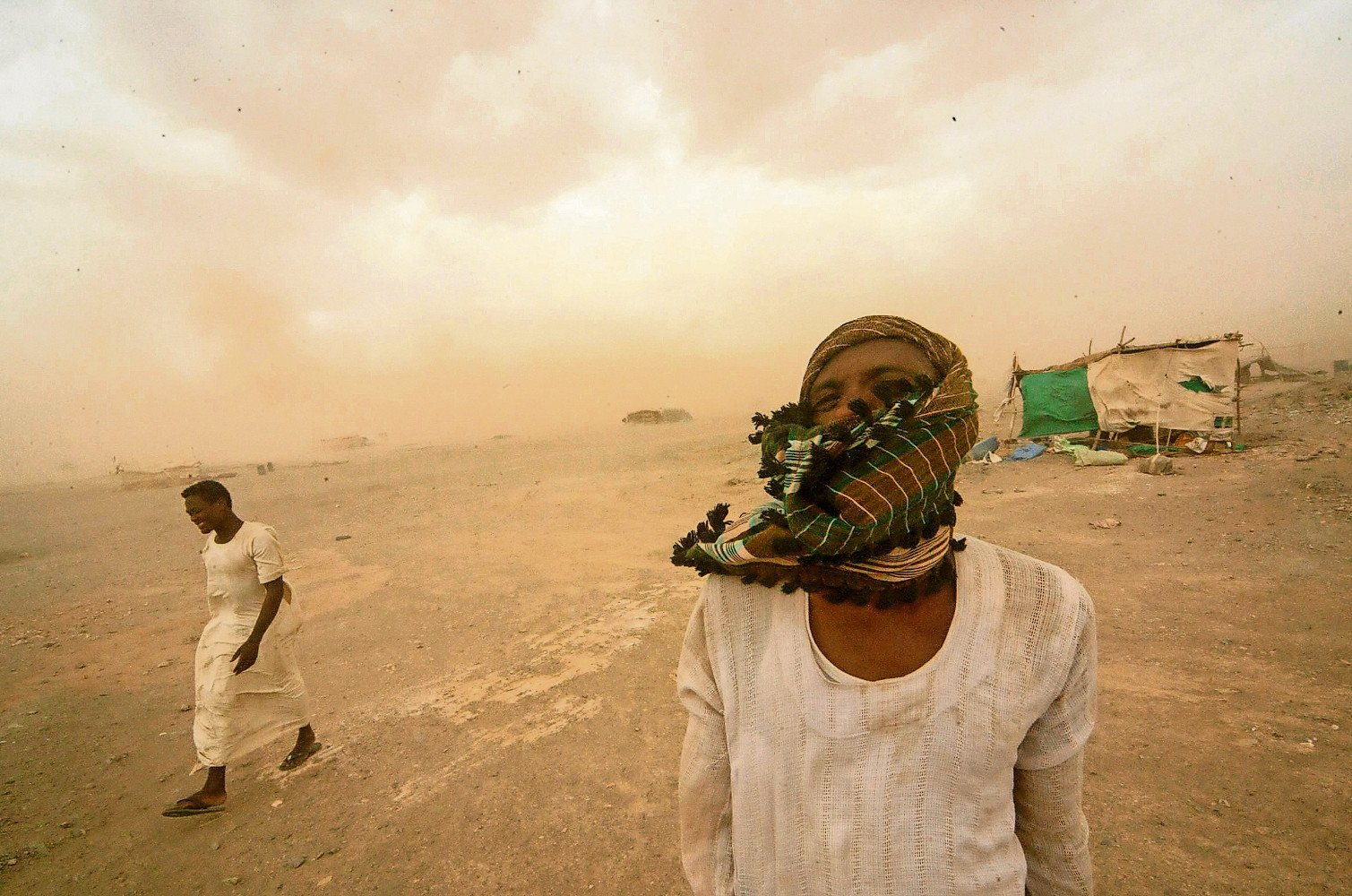Burundi's presidents on a mural.
Sudan is the third-largest gold producer in Africa, yielding more than 70 tonnes of gold each year. But the journey this gold takes once it’s out of the ground has become increasingly difficult to track.
Recent investigations into internal data from accounting firm EY show that a large percentage of Sudan’s gold has been sold to Kaloti, a Dubai-based precious metals solutions and services company responsible for about 40% of Dubai’s gold trade. The emirate’s gold trade is estimated to be worth $75-billion a year and accounts for more than 20% of the international trade in the precious metal.
Kaloti is gaining an increasingly unsavoury reputation for allegedly buying gold from conflict zones like the Democratic Republic of Congo and for its loose due diligence processes.
During 2012, EY acted as a financial and conflict mineral auditor to Kaloti, which, evidence shows, received most of Sudan’s exported gold in that period. Kaloti flagged its own gold suppliers as high risk, a fact that was known by the auditor.
In 2012, about 77% of the 57 tonnes of gold originating from Sudan was exported to Dubai by an arm of the Sudanese government known as the Sudan Financial Services Company (SFS). The remaining 23% was sold by private companies incorporated in the United Arab Emirates or Sudan, which subsequently exported it to Dubai. Most of this gold from Sudan was sold to one refiner in Dubai: Kaloti. All the transactions were audited by EY’s Dubai branch.
Possible conflict of interest
The African Network of Centres for Investigative Reporting (ANCIR) studied EY’s internal data, which disclosed itemised transactions concerning Sudanese gold supplied to Kaloti. Worryingly, more than half of the criteria related to due diligence were not completed.
In a potential conflict of interest, EY effectively audited its own work in advising clients about gold sourced from risky suppliers, by advising on both financial and mineral audits. Such a conflict of interest would be most apparent when auditing and flagging the illicit origin of gold for big clients, whose separate accounting work comprises a solid source of income for an auditing firm.
The results of Grant Thornton audits led to the delisting of Kaloti from the Good Delivery List of Dubai’s quasi-private regulatory body, the Dubai Multi-Commodities Centre (DMCC). EY eventually gave a fully compliant statement that allowed Kaloti to continue dealing with sanctioned companies for more than a year, until Kaloti was delisted from the DMCC.
Kaloti’s supplier details show the beneficiaries of its Sudanese gold purchases as the Bank of Sudan and Sudan’s ministry of commerce and finance. EY’s audit documented that the entities had been screened on World Check, a corporate due diligence system, and that Kaloti itself consistently flagged the suppliers as high risk. In a response to questions sent via email, Kaloti’s lawyers declined to respond to all questions.
Replying to questions about its role in the gold trade and specifically Kaloti, EY said: “EY Dubai refutes entirely the suggestion that we did anything but highly professional work in relation to our compliance engagement with Kaloti.”
The company also claimed: “In the course of its audit work, EY Dubai did not find any evidence that gold from conflict zones in Africa had been moved through Kaloti’s refinery, nor is EY Dubai aware of any such evidence of this.”
EY’s responses were quoted verbatim from its 2014 response to allegations made by former EY partner turned whistle-blower Amjad Rihan, who provided information about $5.2-billion worth of cash transactions by Kaloti. Rihan’s insights, along with a report from United Kingdom-based nongovernmental organisation Global Witness, exposed EY’s role in facilitating illicit mineral-related activities on the part of clients such as Kaloti. What was not disclosed at the time of the report was that almost half of this gold, by value, was imported from Sudanese entities that were under sanctions from the United States.

Smoke rises after a blast in a quarry at the Ariab mine in Sudan. (Mohamed Nureldin Abdallah, Reuters)
Miscategorised as scrap
The official declared volume of Sudan’s gold production for 2012 was just over 46 tonnes. Evidence obtained shows that more than 44 tonnes of this gold was exported by the Sudan government’s SFS, which is under sanction by the US’s Office of Foreign Assets Control. Yet an analysis of thousands of transactions related to 18 suppliers – 17 of which are private entities incorporated in the Gulf or Sudan – show that a minimum of 57 tonnes of gold was exported during 2012.
Every gold transaction has a code. EY’s log of SFS’s 149 transactions with Kaloti totalled 44 tonnes between April 4 and December 20 2012. It showed purity averaging 86% or more. Kaloti’s client verification documentation indicates that SFS supplied “mined gold”, but the gold itself was classified by Kaloti as scrap or already refined, a technique used to avoid enhanced due diligence of freshly mined gold.
While some irregularities from SFS were observed, such as a lack of airway and customs bills on several occasions, the majority of irregularities emanated from private Sudanese suppliers with legal entities registered in the UAE or Sudan. Irregularities included missing invoices, expired passports and expired licences.
Apart from the confirmed gold transactions by SFS, there were several categories of suppliers suspected to be trading in Sudanese gold using airports in Eritrea, Ethiopia, Doha and Bahrain.
Beyond gold formally documented as originating from Sudan, there were other, smaller, quantities suspected to come from the country. For instance, a few suppliers used Ethiopia as a route to transport 1.6 tonnes by hand over 260 transactions. The purity of this gold averaged 88%, indicating that it was mined gold, but the mineral was classified as scrap in these transactions. The process was rife with irregularities, lacking airway bills, customer invoices and the like. The gold was often documented as having been “dropped off at gold souk [the famous Dubai jewellery market]”. Only cash was used. These private suppliers, carrying mined gold through commercial airlines, self-declared the quality of gold as scrap.
Trade with Apple supplier
Once the gold reached Dubai, it had an entryway into the global gold trade. Dubai-based refiners frequently trade horizontally with other Swiss-based refiners who, in turn, supply major multinationals, many of which are based in the US.
Evidence and publicly accessible information shows that in 2012, Kaloti transacted with Swiss-based company Valcambi. The latter is currently documented as a supplier to companies like Apple. Apple’s own supplier disclosure documents confirm that it “commissioned a third-party consultant to conduct an independent investigation on potential links between Al Kaloti and refiners that have been reported in Apple’s supply chain”.
Apple received ANCIR’s interview questions, which were viewed more than dozens of times from its California office, but did not respond. Valcambi responded to questions by saying: “We can neither confirm nor deny any commercial relationship we might have with customers, suppliers or other third parties as the disclosure of any information regarded as potentially commercially sensitive is restricted by [Swiss legislation].” Kaloti declined to respond to any questions, citing the information as being proprietary.
Because regulatory measures such as the US Dodd-Frank Act often fail to explicitly scrutinise the sideways trade between refiners and the role of tax havens like Switzerland and Dubai, where many refiners are based, a systemic blind spot exists in the supply chain. This gap is frequently where the removal of origin of precious metals mined in unstable countries takes place.
Now, Sudan’s gold is the subject of a United Nations report blocked by two members of the UN Security Council: China and Russia. The latter claims that its demands for passages from the report to be redacted are based on concern for Sudan’s artisanal gold miners. Russia did not respond to ANCIR’s email, which was read in Moscow.
The activities covered up by EY, in fact, allegedly constitute the content of the blocked UN report. The security council’s spokesperson, Sana Khan, stated: “I am not authorised to speak to the media on confidential security council or Sudan sanctions committee matters.”
The US has applied sanctions to public entities in Sudan, including the SFS, rendering the gold trade in violation of US sanctions were any to circulate back to the US. The US’s Office of Foreign Assets Control, responsible for enforcing economic and trade sanctions, did not respond to interview questions. The Sudanese government did not respond to questions at the time of publication.

Gold mine workers walk to their shelter during a sandstorm in Al-Ibedia locality at River Nile State (Mohamed Nureldin Abdallah, Reuters)
Gold sales ‘funding illegal weapons’
The use of proceeds from Sudanese gold sales is highly problematic. Gold is simultaneously a source of revenue for a desperate populace and an alleged source of weapons funding for violent groups.
According to publicly available information, the gold trade in Sudan is directly fuelling conflict. At the gold mines themselves, more than 800 people were killed in 2012 and 2013.
At more than 950 tonnes in proved gold reserves and half a million artisanal miners reportedly mining it, Sudan is experiencing a veritable gold rush. According to Sudan’s mining ministry, artisanal mining makes up 90% of gold production in the country.
A significant percentage of gold is smuggled abroad, outside the reach of the government. Much of this is carried by hand via commercial airlines and transacted for cash, leaving little in the way of paper trails.
To curb smuggling, Sudan’s Central Bank has encouraged local producers – including artisanal miners at the Jebel Amer gold mine in North Darfur – to sell directly to the central bank. The gold is said to be acquired at prices higher than market rate to encourage artisanal miners and potential smugglers to work within the system.
But the presence of gold has changed the tenor of unrest in Sudan: in 2013, tension between rival tribes fighting over Jebel Amer’s gold resulted in the displacement of more than 150 000 people and the death of 800 people. Speaking to UN sources, Reuters reported “the [Sudanese] government has been complicit in the violence by encouraging at least one militia group to seize control of mines, a charge the government denies”.
This article was produced by the African Network of Centres for Investigative Reporting and supported by the Connecting Continents grant